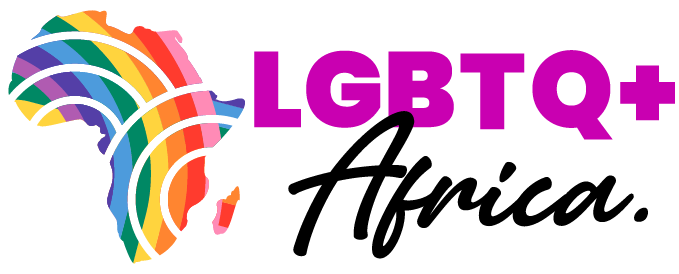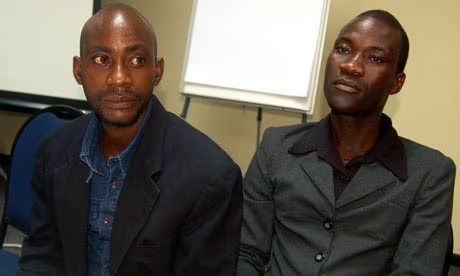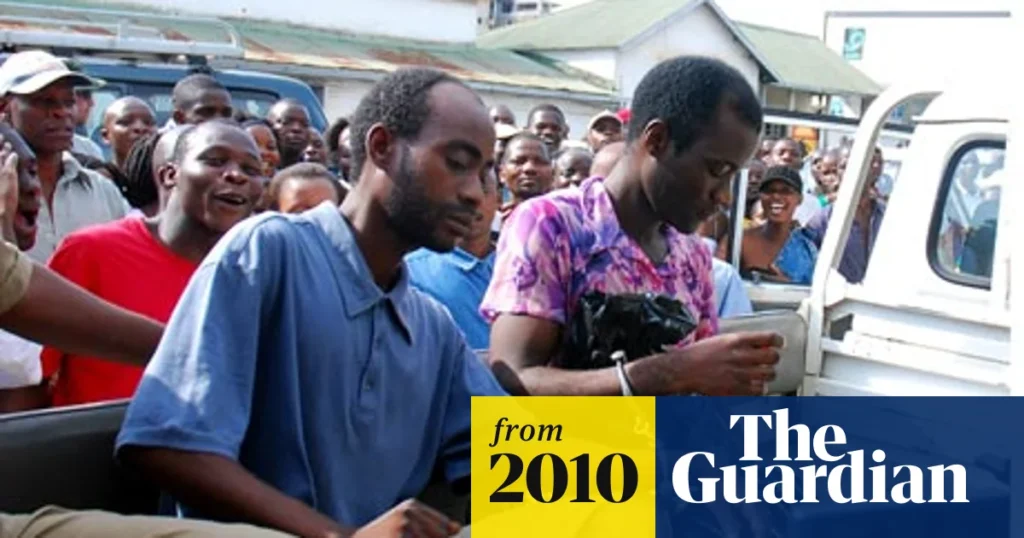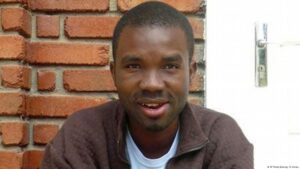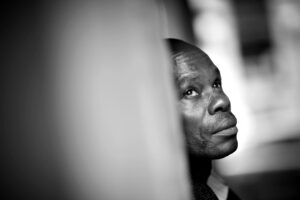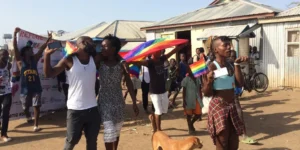In December 2009, Tiwonge Chimbalanga and Steven Monjeza made headlines around the world when they were arrested in Malawi for holding a traditional engagement ceremony. Their case became a symbol of the broader struggle for LGBTQ+ rights in Africa, where homosexuality is criminalized in many countries. The couple’s arrest, trial, and eventual pardon sparked global outrage and brought much-needed attention to the human rights abuses faced by LGBTQ+ individuals in Malawi and beyond.
Background: LGBTQ+ Rights in Malawi
Malawi is one of the many African countries where homosexuality is illegal. Under Section 153 of the Malawian Penal Code, “unnatural offenses” and “indecent practices between males” are punishable by up to 14 years in prison. LGBTQ+ individuals in Malawi face widespread discrimination, violence, and social ostracism, often forcing them to live in secrecy and fear.
Despite these challenges, a small but growing LGBTQ+ rights movement has emerged in Malawi, advocating for the decriminalization of homosexuality and greater acceptance of queer individuals. The case of Tiwonge Chimbalanga and Steven Monjeza became a focal point for this movement, highlighting the urgent need for change.
The Arrest and Trial
On December 26, 2009, Tiwonge Chimbalanga and Steven Monjeza held a traditional engagement ceremony in Blantyre, Malawi. The ceremony, which was attended by friends and family, was a public declaration of their love and commitment to each other. However, their celebration was short-lived.
Two days later, the couple was arrested by Malawian police and charged with “unnatural offenses” and “indecent practices between males.” Their arrest sparked widespread condemnation from human rights organizations, both within Malawi and internationally.
- The Trial: The trial of Tiwonge and Steven began in January 2010 and quickly became a media sensation. The couple faced intense scrutiny and hostility, both from the public and the judicial system. During the trial, the prosecution argued that the couple’s engagement ceremony was evidence of their guilt, while the defense maintained that they had the right to express their love freely.
- Public Reaction: The case divided public opinion in Malawi. While some supported the couple and called for their release, others condemned them, reflecting the deep-seated homophobia in Malawian society. Internationally, the case drew widespread attention, with human rights organizations, governments, and activists calling for the charges to be dropped.
- The Verdict: On May 18, 2010, Tiwonge and Steven were found guilty of “unnatural offenses” and “indecent practices between males.” They were sentenced to the maximum penalty of 14 years in prison with hard labor. The verdict was met with outrage from the international community, with many condemning it as a violation of human rights.
International Outcry and Pardon
The harsh sentence imposed on Tiwonge and Steven sparked a global outcry. Human rights organizations, including Amnesty International and Human Rights Watch, condemned the verdict and called for the couple’s immediate release. The case also drew the attention of world leaders, including United Nations Secretary-General Ban Ki-moon, who urged Malawi to respect the rights of LGBTQ+ individuals.
- Intervention by the UN: In response to the international pressure, the United Nations issued a statement calling for the decriminalization of homosexuality worldwide and emphasizing the importance of protecting the rights of LGBTQ+ individuals.
- Pardon by President Bingu wa Mutharika: On May 29, 2010, just 11 days after the verdict, Malawian President Bingu wa Mutharika pardoned Tiwonge and Steven. The pardon came after a meeting with UN Secretary-General Ban Ki-moon, during which the case was discussed. While the pardon was a victory for the couple and their supporters, it did not address the underlying issues of discrimination and criminalization faced by LGBTQ+ individuals in Malawi.
Life After the Pardon
Following their release, Tiwonge and Steven faced ongoing challenges. They were ostracized by their communities and struggled to rebuild their lives in a society that remained deeply hostile to LGBTQ+ individuals.
- Tiwonge Chimbalanga: Tiwonge, a transgender woman, sought asylum in South Africa, where she could live more openly and safely. In South Africa, she became an advocate for LGBTQ+ rights, sharing her story and raising awareness about the struggles faced by queer individuals in Malawi. Tiwonge’s courage and resilience have made her a symbol of hope for LGBTQ+ communities across Africa.
- Steven Monjeza: Steven chose to remain in Malawi, where he faced ongoing discrimination and hardship. Despite the challenges, he has continued to advocate for LGBTQ+ rights, working to create a more inclusive society in his home country.
Legacy and Impact
The case of Tiwonge Chimbalanga and Steven Monjeza had a profound impact on the fight for LGBTQ+ rights in Malawi and beyond.
- Global Attention: The case brought international attention to the human rights abuses faced by LGBTQ+ individuals in Malawi, prompting calls for reform from governments and organizations around the world.
- Inspiring Activism: Tiwonge and Steven’s courage inspired a new generation of LGBTQ+ activists in Malawi and across Africa. Their story became a rallying cry for the fight against homophobia and discrimination.
- Ongoing Struggles: While the case highlighted the need for change, LGBTQ+ individuals in Malawi continue to face significant challenges. The fight for decriminalization and greater acceptance remains ongoing.
The Road Ahead
The case of Tiwonge Chimbalanga and Steven Monjeza serves as a reminder of the urgent need for LGBTQ+ rights in Malawi and across Africa. Key steps to advance this cause include:
- Decriminalization: Advocating for the repeal of laws that criminalize homosexuality.
- Education and Awareness: Challenging stereotypes and prejudices through education and public awareness campaigns.
- Protection for LGBTQ+ Individuals: Ensuring the safety and security of LGBTQ+ individuals, particularly those who face violence and discrimination.
- International Support: Building partnerships with international organizations to amplify the voices of LGBTQ+ activists in Malawi.
Conclusion
The story of Tiwonge Chimbalanga and Steven Monjeza is one of love, courage, and resilience. Their fight for the right to love freely in the face of immense adversity brought global attention to the struggles faced by LGBTQ+ individuals in Malawi and inspired a movement for change. While their journey was marked by hardship, their legacy lives on in the ongoing fight for equality and justice. As we honor their courage, we must also recommit ourselves to the cause they championed, ensuring that everyone, regardless of their sexual orientation or gender identity, can live with dignity and freedom.
